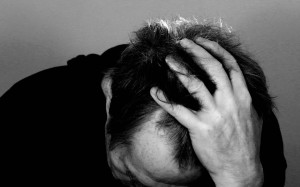
The use of over-the-counter (OTC) medications for the purpose of getting high has increased substantially over the last two decades, particularly amongst high school and college students. [1, 2]
While many perceive these drugs to be safer than illegal stimulant drugs like cocaine or amphetamines, misuse of OTC stimulant medications can result in adverse side effects like increased heart rate and blood pressure, sweating, sleep impairment, and decreased appetite.
At high doses, OTC medications may result in toxicity (overdose). [1, 3]
The likelihood of developing a dependence on stimulants is quite high, as many seek out the increased energy and alertness, and appetite suppression associated with these medications.
In general, OTC stimulants most likely to be misused include:
- Nicotine gum
- Ephedra*
- Ephedrine*
- Pseudoephedrine (decongestant, found in cold medications)
- Phenylpropanolamine (decongestant, found in cold medications)
- Dextromethorphan hydrobromide (found in cough medications) **
- Dietary supplements containing caffeine [4]
Dependence and Withdrawal
As with other drugs, repeated use over time often leads to tolerance (requiring increased amounts of the substance to experience the desired effect), dependence (psychological and/or physical need for the substance in order to function normally), and withdrawal when use of the substance abruptly stops.

Dependence is differentiated from addiction in that addiction tends to involve continued use of the substance despite negative outcomes. [5]
Many people will likely admit to a caffeine dependence; similar dependence on other stimulants can develop with frequent use. Withdrawal from stimulants is often associated with hypersomnia (increased tiredness or sleep), hyperphagia (increased appetite and consumption of food), slowed heart rate (bradycardia), and irritability. [3, 6]
Misuse of OTC stimulant medication, particularly dextromethorphan, for the purpose of getting high is becoming a significant problem amongst teenagers, with many likely at risk of developing a dependence.
Treatment programs for drug dependence generally focus on illegal or prescription drugs; the rise in abuse of OTC medications may lead to an increase in treatment availability for those struggling with dependence on non-prescription medications.
The limited, yet growing body of research into the misuse of OTC medications urges the importance for medical professionals to inquire about patients' use of these medications. [7]
Detoxification
Typical substance dependence rehabilitation programs include a detoxification ('detox') program prior to behavioral and/or psychological treatment. [6] Detoxing is a natural process completed by the body via the liver and kidneys, and may vary depending on the substance of abuse.

The use of packaged herbal cleanses is unnecessary and perhaps should be avoided; these programs typically involve the use of laxative medications, which will result in dehydration and reduced energy.
Stimulant drugs are removed from the body quickly (over the period of two or three days), usually without the painful physical side effects associated with opioid drugs. Depending on the degree of dependence or addiction, detoxification may be completed with or without medical supervision. [6]
Sleep and fluid replacement can be particularly helpful during the detoxification process; increased tiredness will occur as stimulant use ceases, increasing fluid intake will help the liver and kidneys flush out the chemicals in the stimulant medication.
Eating whole, minimally processed foods can help to mitigate the drop in energy associated with stimulant reduction. Consumption of complex carbohydrates will help regulate blood sugar levels, which will then stabilize energy levels in the absence of external stimulants.
Gradual Reduction of Medication
Stimulant users may prefer to gradually taper off medication doses before attempting detoxification; similar to smoking cessation, gradually reducing the use of the substance may be more effective and result in long-term avoidance than suddenly stopping. This may be a longer process, but allows the user to get used to reduced dosages of the stimulant of choice. [6]
Substitution
Also known as agonist treatment, substituting the drug of choice with a similar substance may help to lessen the effects of withdrawal; however, this process is more effective with opioid drugs than with stimulants.
Replacement of heroin with methadone has been shown to be effective, but attempts to replace cocaine or amphetamine with methylphenidate (Ritalin) or similar stimulant medication has not elicited useful results. With respect to OTC stimulants, gradual reduction may be more effective than substitution.
When to Seek Professional Help
If stimulant dependence has been ongoing for an extended period of time, the individual may require professional assistance to assist in the detoxification process. Prolonged stimulant abuse may cause adverse effects to the heart and kidneys, medical supervision throughout the detox process may be recommended.

Hospitalization or admittance to an in-patient treatment program will allow for supervised detoxification by medical professionals.
Follow-up with a counsellor or physician is recommended after detoxification, although many do not seek out this type of support. [6]
Working with a counsellor prior to, during, and after the detox process can help to uncover the reasons for stimulant misuse and dependence in the first place; continued support will reduce the likelihood of relapse by providing behavioral or cognitive strategies the individual may use.
As with any substance of addiction, uncovering and dealing with the roots of the addiction will help reduce the occurrence of relapse or development of replacement addictions.
*Ephedrine and ephedra-based products are no longer available for sale in over-the-counter products in the United States, although OTC sales of ephedrine as a bronchodilator may be available internationally.
**Dextromethorphan hydrobromide is structurally similar to codeine and not necessarily a stimulant medication, but high doses of this medication cause dissociative and altered mental states. This medication should not be consumed with stimulant medications or MAO inhibitors. [8]
References:
1. Levine, D. A. (2007). 'Pharming': The abuse of prescription and over-the-counter drugs in teens. Current Opinion in Pediatrics, 19: 270-274.
2. Bentosh, E. G., Koester, S., Martin, A. M., Cejka, A., Luckman, D., & Jeffers, A. J. (2014). Intentional misuse of over-the-counter medications, mental health, and polysubstance use in young adults. Journal of Community Health, 39: 688-695.
3. Schuckit, M. A. (1994). The treatment of stimulant dependence. Addiction, 89: 1559-1563.
4. Lessenger, J. E., & Feinberg, S. D. (2008). Abuse of prescription and over-the-counter medications. Journal of the American Board of Family Medicine, 21(1): 45-54.
5. Compton, W. M., Thomas, Y. F., Stinson, F. S., & Grant, B. F. (2007). Prevalence, correlates, disability, and comorbidity of DSM-IV drug abuse and dependence in the United States: Results from the national epidemiologic survey on alcohol and related conditions. Archives of General Psychiatry, 64(5): 566-576.
6. O'Brien, C. P. (2008). Evidence-based treatments of addiction. Philosophical Transactions of the Royal Society B, 363: 3277-3286.
7. Gracious, B., Abe, N., & Sundberg, J. (2010). The importance of taking a history of over-the-counter medication use: A brief review and case illustration of "PRN" antihistamine dependence in a hospitalized adolescent. Journal of Child and Adolescent Psychopharmacology, 20(6): 521-525.
About the author:
 Stephanie Sands is currently pursuing a Bachelor of Science degree in Kinesiology, majoring in Mind Sciences. She completed an Honors Degree in Psychology in 2012, focusing on eating disorders and personality. She intends to combine her educational background into a holistic wellness practice, to strengthen mental health through a combination of counselling, physical activity, and nutrition coaching.
Stephanie Sands is currently pursuing a Bachelor of Science degree in Kinesiology, majoring in Mind Sciences. She completed an Honors Degree in Psychology in 2012, focusing on eating disorders and personality. She intends to combine her educational background into a holistic wellness practice, to strengthen mental health through a combination of counselling, physical activity, and nutrition coaching.
The opinions and views of our guest contributors are shared to provide a broad perspective of addictions. These are not necessarily the views of Addiction Hope, but an effort to offer discussion of various issues by different concerned individuals.
We at Addiction Hope understand that addictions result from a combination of environmental and genetic factors. If you or a loved one are suffering from an addiction, please know that there is hope for you, and seek immediate professional help.
Updated & Reviewed By: Jacquelyn Ekern, MS, LPC on March 13, 2016
Published on AddictionHope.com
